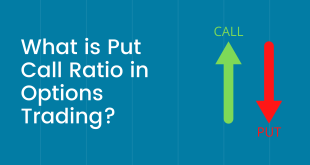Freelance Bookkeeper
In today’s digital age, the demand for freelance bookkeeper is on the rise. Businesses, especially small to medium-sized enterprises (SMEs), are increasingly seeking remote bookkeepers to manage their financial records efficiently. If you’re considering a career as a freelance bookkeeper or if you’re a business looking to hire one, understanding the role and its dynamics in the remote work environment is crucial.
Understanding the Role of a Freelance Bookkeeper
A freelance bookkeeper plays a pivotal role in maintaining accurate financial records for businesses. They are responsible for tasks such as recording financial transactions, managing payroll, reconciling bank statements, and preparing financial reports. As businesses transition to remote operations, the need for skilled remote bookkeepers has grown exponentially.
The Importance of Remote Bookkeepers in Today’s Business Landscape
Remote bookkeeper wanted provide flexibility and cost-effectiveness to businesses by working from their own locations. This setup eliminates the need for physical office space and allows businesses to access professional financial services on a flexible basis. Whether it’s managing day-to-day transactions or preparing tax returns, remote bookkeepers ensure that businesses stay financially organized and compliant.
Qualities of an Effective Remote Bookkeeper
To excel as a remote bookkeeper, certain skills and qualities are essential. Attention to detail, proficiency in accounting software, and strong communication skills are paramount. Remote bookkeepers must also possess a solid understanding of tax regulations and financial reporting standards to provide accurate and timely financial insights to their clients.
How to Become a Successful Freelance Bookkeeper
Becoming a freelance bookkeeper requires a combination of education, experience, and professional certifications. Many aspiring bookkeepers pursue courses in accounting or obtain certifications such as Certified Public Bookkeeper (CPB) or Certified Bookkeeper (CB) to enhance their credibility. Gaining practical experience through internships or entry-level positions can also provide valuable insights into the profession.
Remote Bookkeeper Wanted: Meeting the Demand
Businesses looking to hire remote bookkeepers seek individuals who not only possess technical proficiency but also demonstrate reliability and trustworthiness. Remote bookkeepers often handle sensitive financial information, making integrity and confidentiality essential attributes. By outsourcing bookkeeping tasks to remote professionals, businesses can focus more on their core operations while ensuring financial stability and compliance.
The Future Outlook for Freelance Bookkeepers
As businesses continue to embrace remote work models, the demand for freelance bookkeepers is expected to grow. This trend presents opportunities for individuals seeking flexible work arrangements and businesses aiming to streamline their financial operations. Freelance bookkeepers who stay updated with industry trends and technological advancements will remain highly sought after in the evolving digital economy.
Embracing Technology in Remote Bookkeeping
Technology plays a pivotal role in the efficiency and effectiveness of remote bookkeepers. Cloud-based accounting software such as QuickBooks Online and zero allows bookkeepers to securely access financial data from anywhere, ensuring real-time updates and collaboration with clients. Automated processes for invoicing, expense tracking, and bank reconciliation streamline workflow, freeing up time for strategic financial analysis and advisory services. By leveraging technology, remote bookkeepers enhance productivity and accuracy, thereby adding significant value to businesses seeking agile financial management solutions.
Adapting to Regulatory Changes and Compliance
Remote bookkeepers must stay abreast of regulatory changes and compliance requirements relevant to their clients’ industries and geographical locations. This includes understanding tax laws, financial reporting standards, and data protection regulations such as GDPR. By maintaining compliance and advising clients on best practices, remote bookkeepers mitigate risks and ensure adherence to legal requirements, enhancing the financial integrity and reputation of businesses.
Offering Value-Added Services Beyond Traditional Bookkeeping
To differentiate themselves in the competitive freelance market, remote bookkeepers can offer value-added services beyond traditional bookkeeping. This may include financial analysis, budgeting and forecasting, cash flow management, and strategic advisory services. By providing actionable insights and recommendations based on financial data, remote bookkeepers become trusted advisors who contribute to their clients’ business growth and decision-making processes.
Continuous Professional Development and Networking
Continuous learning and professional development are essential for remote bookkeepers to stay competitive and relevant in the industry. Participating in webinars, workshops, and obtaining advanced certifications such as Certified Management Accountant (CMA) or Certified Public Accountant (CPA) enhances expertise and credibility. Networking with industry peers, joining professional associations, and engaging in online forums foster collaboration, knowledge sharing, and potential client referrals, expanding opportunities for professional growth and career advancement in remote bookkeeping.
Building Trust and Long-Term Client Relationships
Successful remote bookkeepers prioritize building trust and fostering long-term client relationships. Clear communication, transparency, and proactive client engagement are fundamental to establishing credibility and reliability. By understanding each client’s unique business needs and goals, remote bookkeepers can tailor financial solutions and insights that drive growth and profitability. Regularly updating clients on financial performance, upcoming deadlines, and regulatory changes demonstrates professionalism and commitment, fostering a collaborative partnership built on trust and mutual success.
Conclusion
In conclusion, the role of a freelance bookkeeper has evolved significantly in response to technological advancements and changing work dynamics. Remote bookkeepers play a critical role in helping businesses maintain financial health and compliance from anywhere in the world. Whether you’re considering a career as a freelance bookkeeper or looking to hire one, understanding the nuances of remote bookkeeping is key to achieving mutual success in today’s competitive business landscape.
By focusing on continuous learning, leveraging technology, and embracing remote work opportunities, freelance bookkeepers can carve out rewarding careers while providing invaluable support to businesses worldwide. Embrace the future of work as a freelance bookkeeper and discover the limitless possibilities of remote bookkeeping today.
 Daily Blogger News Stay updated with the latest trends and insights. Your reliable source for daily updates and information.
Daily Blogger News Stay updated with the latest trends and insights. Your reliable source for daily updates and information.







